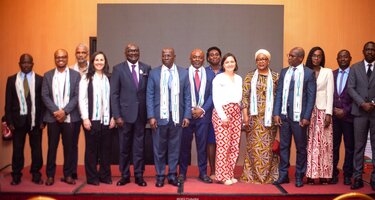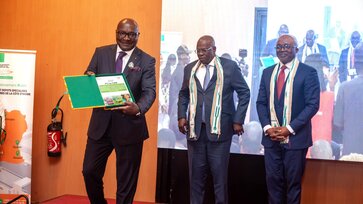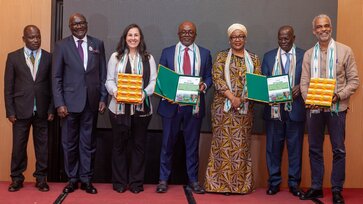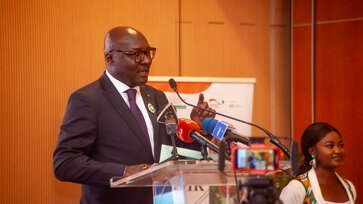FIT for FAIR closes in Côte d’Ivoire: Handover of Policy Recommendations
On July 3rd in Côte d’Ivoire, the FIT for FAIR project – implemented by the Ivorian National Export Council (Conseil National des Exportations) with the support of the Deutsche Gesellschaft für Internationale Zusammenarbeit and SASI – was concluded, marking 18 months of intensive discussions and work on enabling framework conditions for the operationalization of key due diligence regulations: namely, the EU Deforestation Regulation (EUDR), the German Supply Chain Act (LkSG), and the EU Corporate Sustainability Due Diligence Directive (CSDDD).
FIT for FAIR is active globally and aims to enable partner countries to create conducive policies and a legislative environment that allow relevant supply chain actors to comply with key due diligence regulations. Over the past 1.5 years, several working group sessions and focus group discussions brought together stakeholders from the public and private sectors, producer organizations, civil society, and academia to jointly discuss and evaluate the political and legal environment related to due diligence in Côte d’Ivoire. Topics such as living income, human and child rights, legality, traceability, and environmental and forest protection were at the heart of the discussions.
Stakeholders Review National Framework and Propose Roadmap for Policy Action
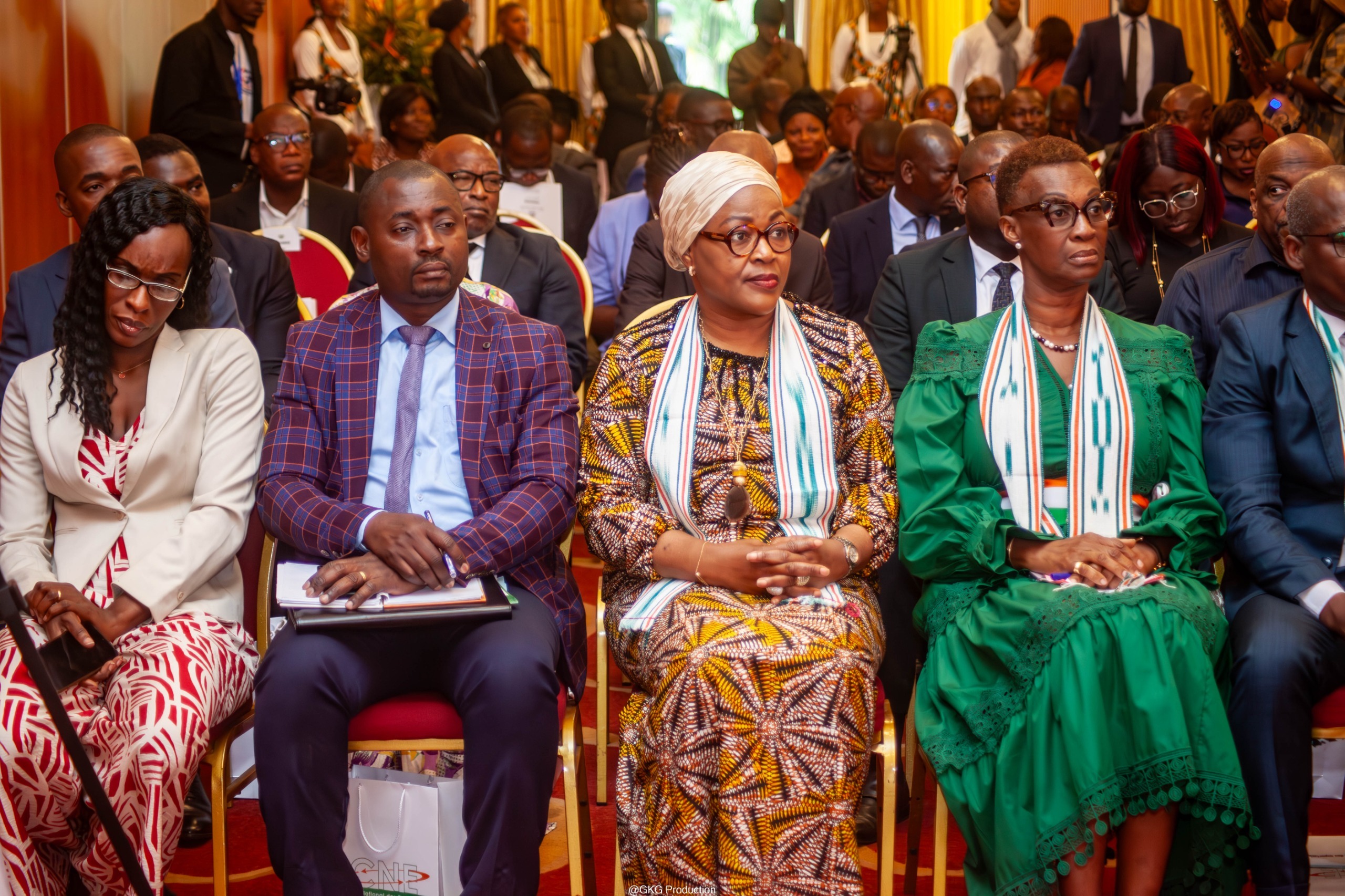
The status quo analysis of the national framework, which was drawn up and validated by the working group, showed: Côte d’Ivoire is already implementing several activities, including the national traceability system for the cocoa sector, a national land use map, several dialogue formats, and numerous laws to protect forests, the environment, and human rights. However, law enforcement, knowledge of the legislative environment by rights holders, access to land rights for women, the interoperability of different traceability systems, and associated data protection account for some of the challenges identified. Based on this profound analysis, the interdisciplinary multi-stakeholder group, guided by a group of national and international experts and CNE, formulated a set of policy recommendations and a roadmap outlining concrete activities to bring these into action and create a favorable policy environment.
Have a look at the full report and policy recommendations here: RAPPORT D'ETUDES PROJET FIT for FAIR COTE D'IVOIRE - CNE
Policy Recommendations Handed Over to Key Ministries and the Prime Minister’s Office
On July 3rd, the project concluded with the official handover of policy recommendations to national decision-makers in Côte d’Ivoire—foremost to the Ministry of Trade and Industry, being the ministry in charge of CNE, as well as to the Prime Minister’s Office, the Ministry of Agriculture, and the Ministry of Justice, to name a few. Michel Malan, technical advisor to the Minister of Trade and Industry, encouraged all stakeholders to “work towards making Côte d’Ivoire a model in terms of compliance with international standards […]” and concluded that the handover of the policy recommendations opens the way to the ownership of the project’s conclusions at the highest level.
CNE Establishes Taskforce to Advance Due Diligence Implementation
The Conseil National des Exportations set up a Due Diligence Taskforce, bringing together relevant stakeholders, to follow up on the policy recommendations and their implementation. In this sense, the Secretary General of the National Export Council, Serges Martial Bombo, concluded:
The FIT for FAIR project is taking place in a context where it is becoming imperative to rethink practices, integrate sustainability standards into value chains, and ensure that products meet the new requirements of European markets. This is not a constraint, but an opportunity to transform the economy, preserve forests, and promote sustainable development in Côte d'Ivoire.
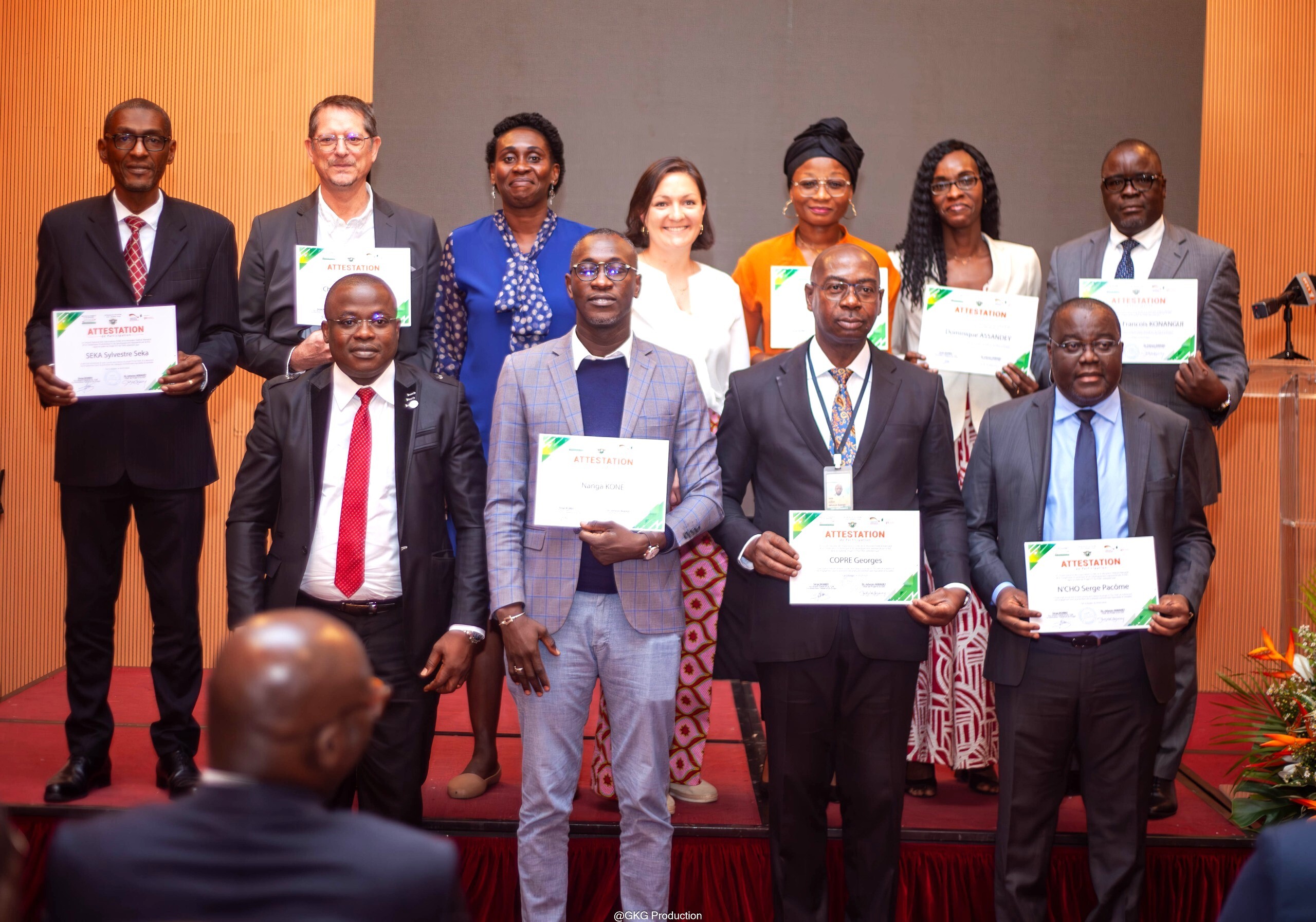
Want to read and see more?
- TV Report by Business24 Africa: LUTTE CONTRE LA DÉFORESTATION: Des recommandations à la clôture du projet FIT FOR FAIR
- Article on the Official Government Portal of Côte d’Ivoire: FIT FOR FAIR PROJECT: CÔTE D'IVOIRE COMPLIES WITH INTERNATIONAL MARKET STANDARDS TO IMPROVE THE EXPORT COMPETITIVENESS OF ITS PRODUCTS
